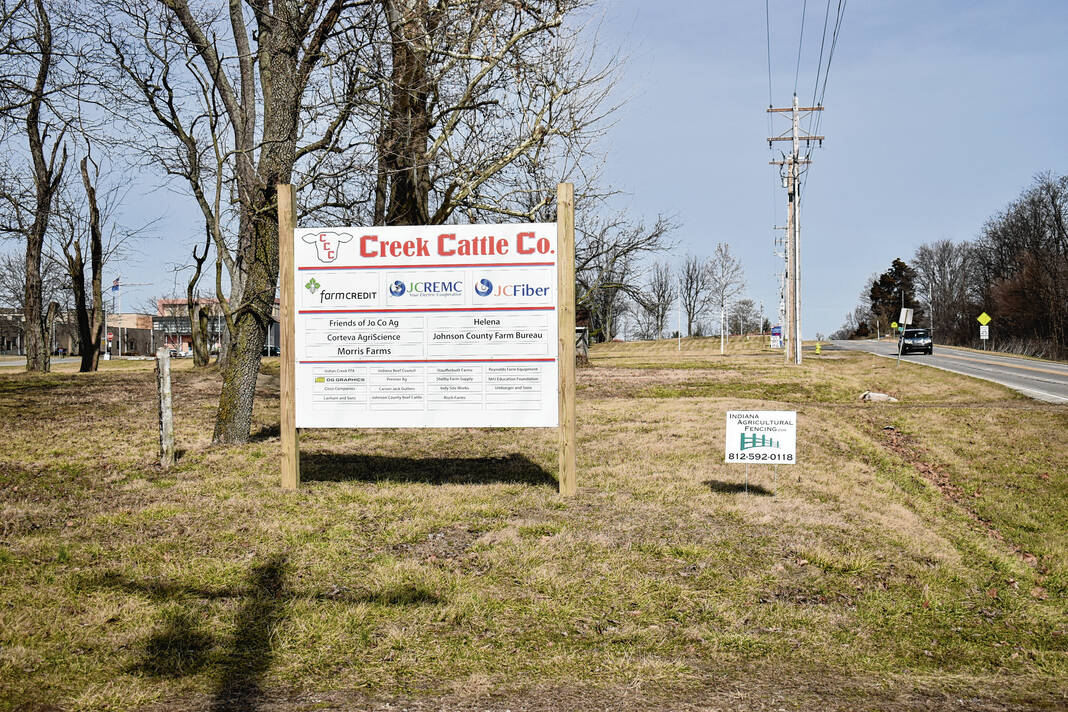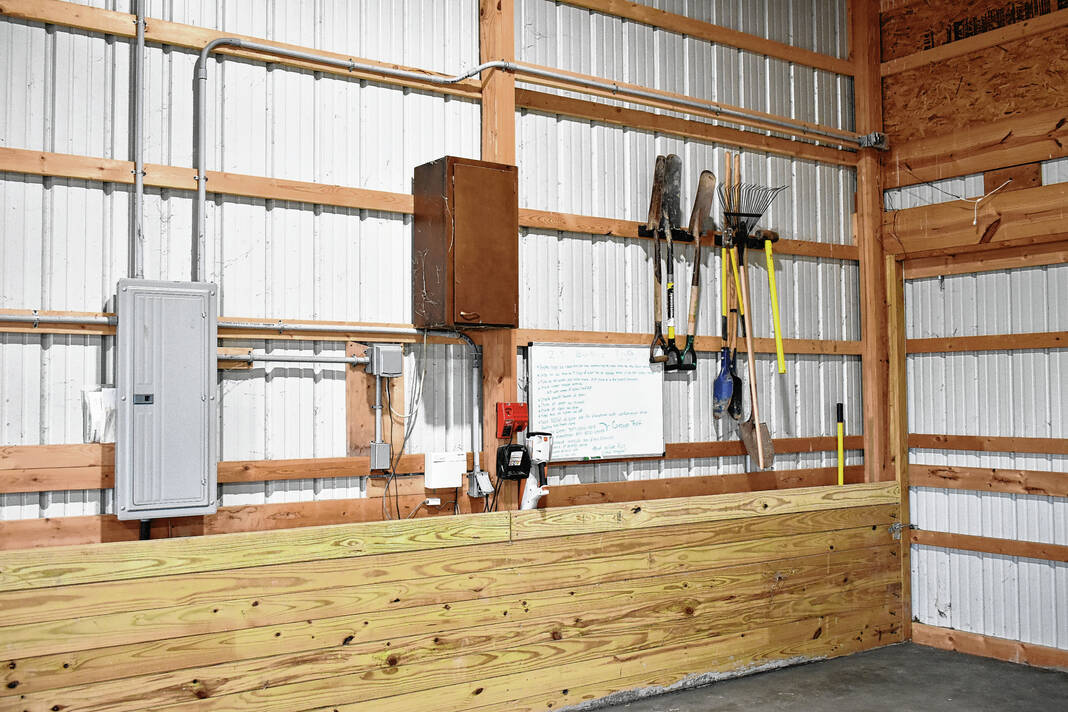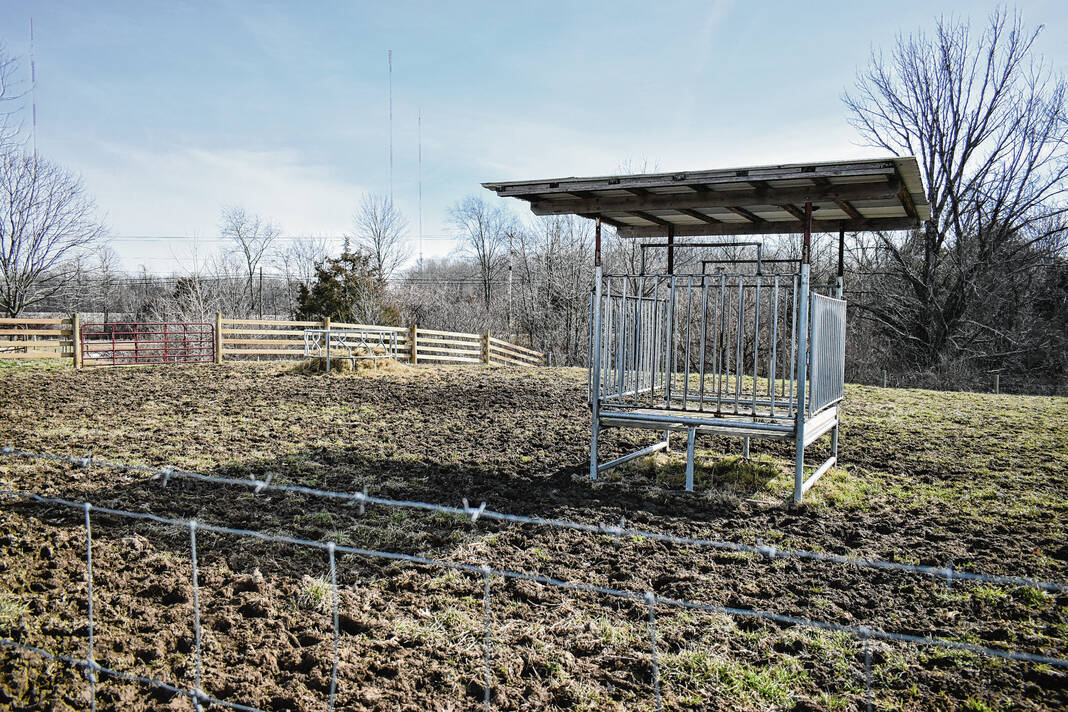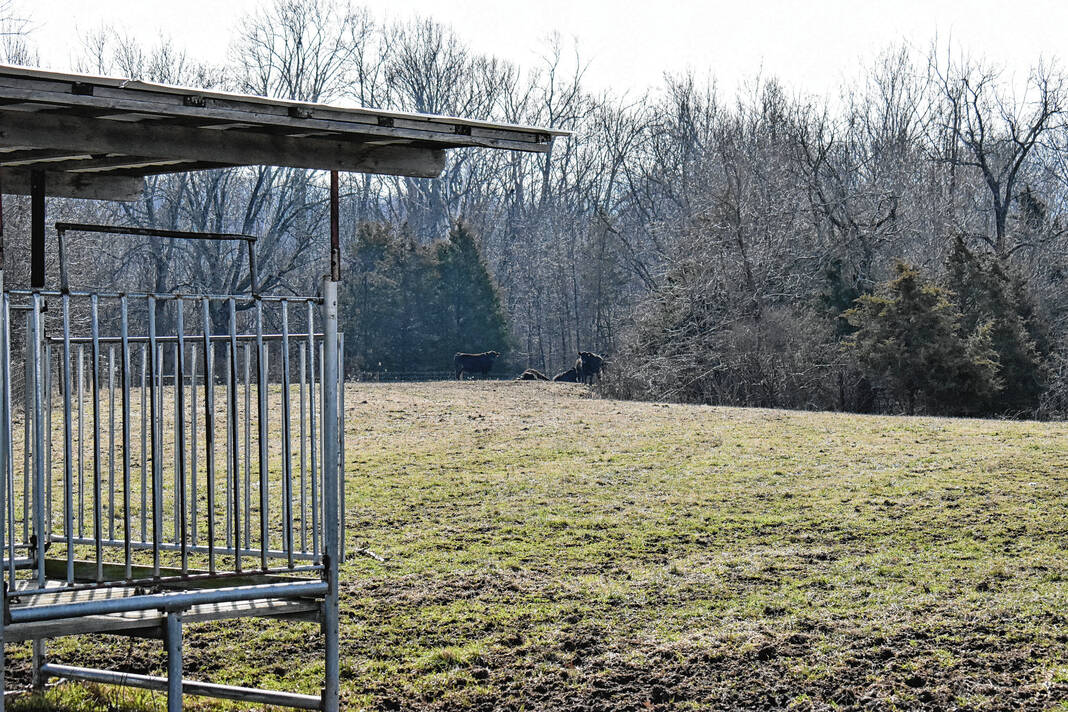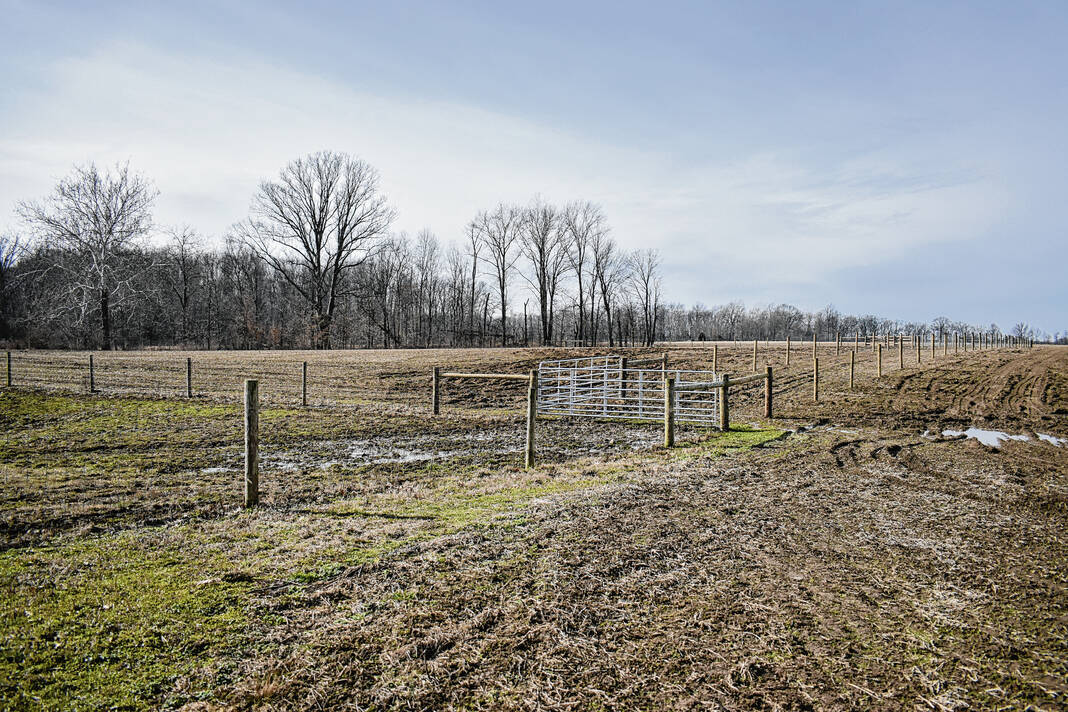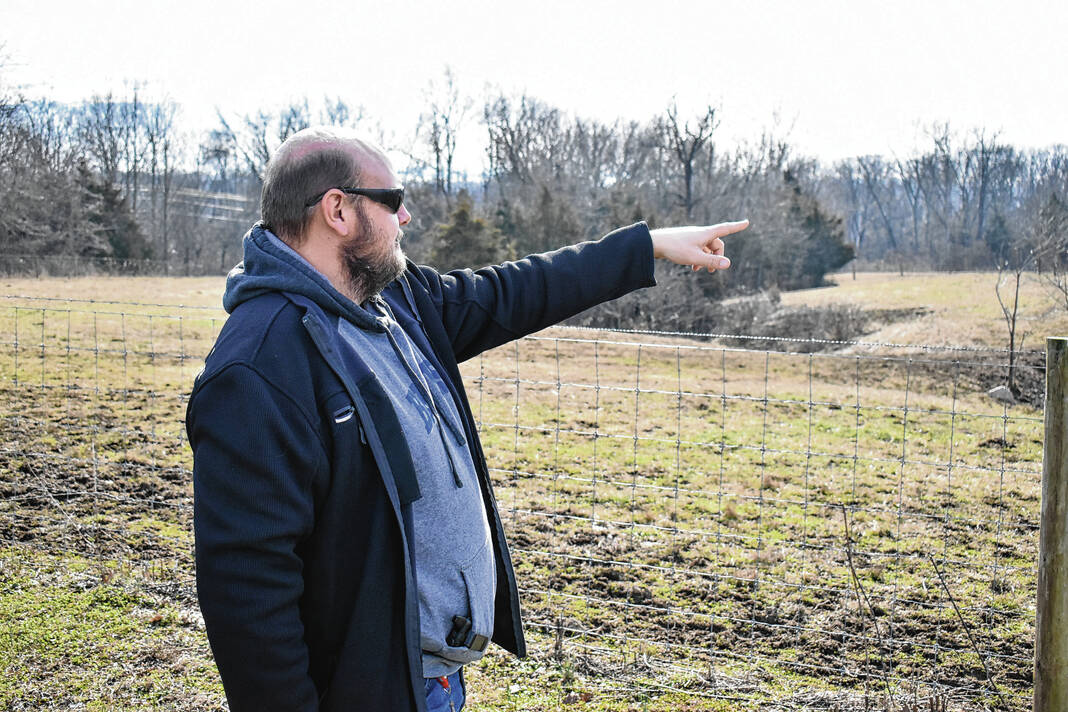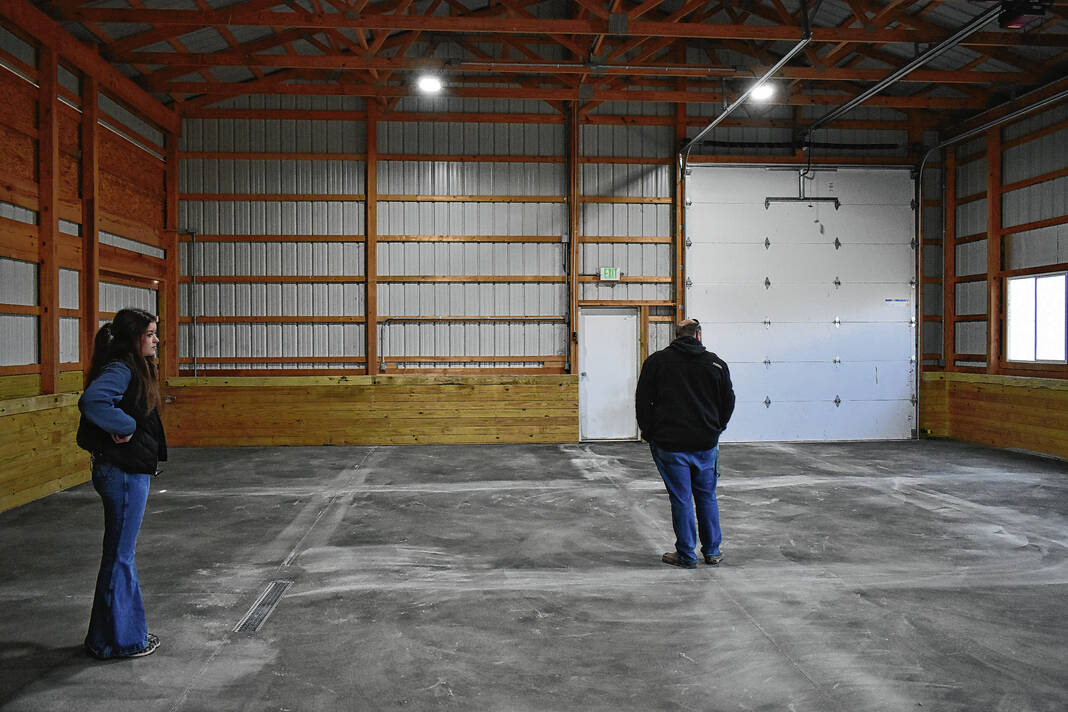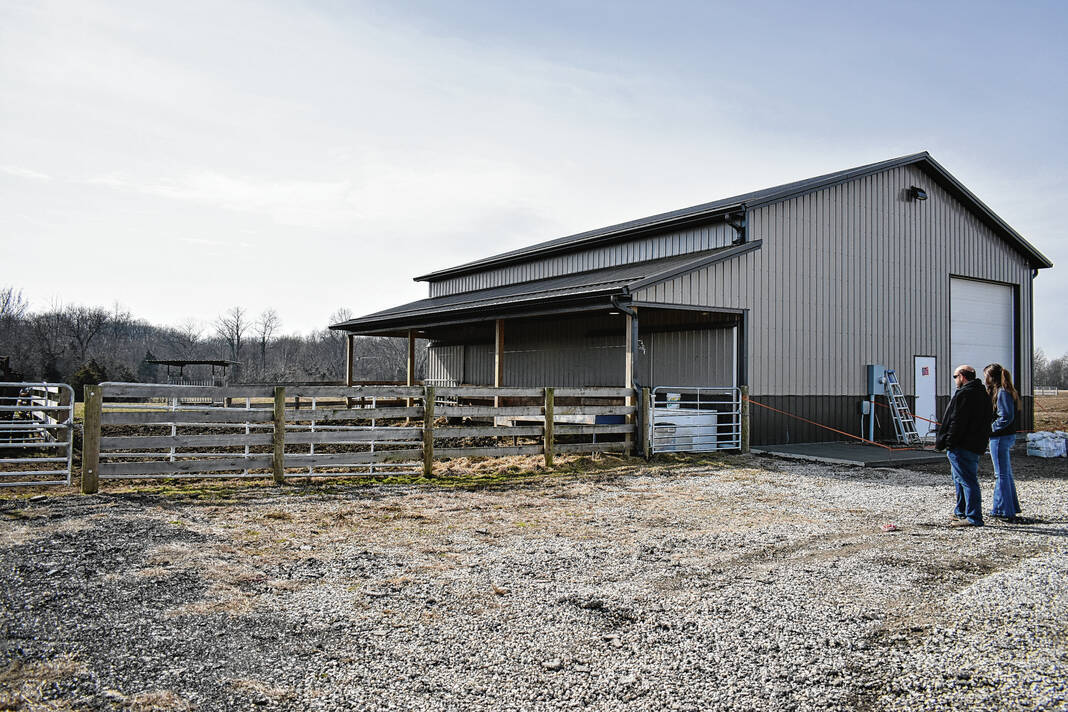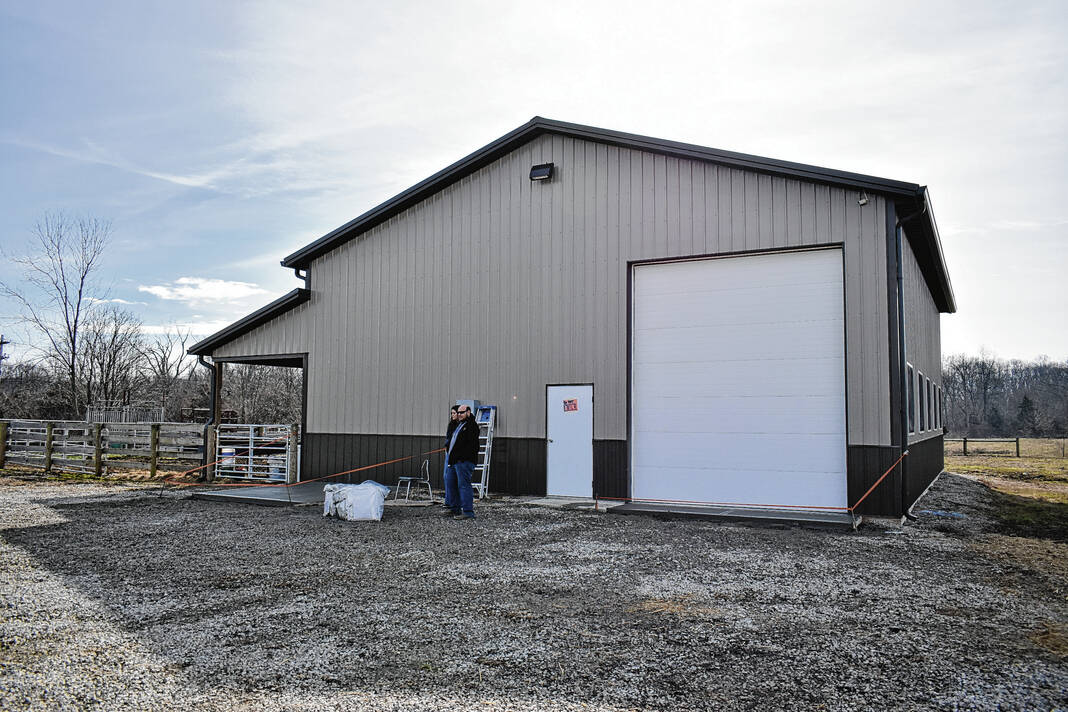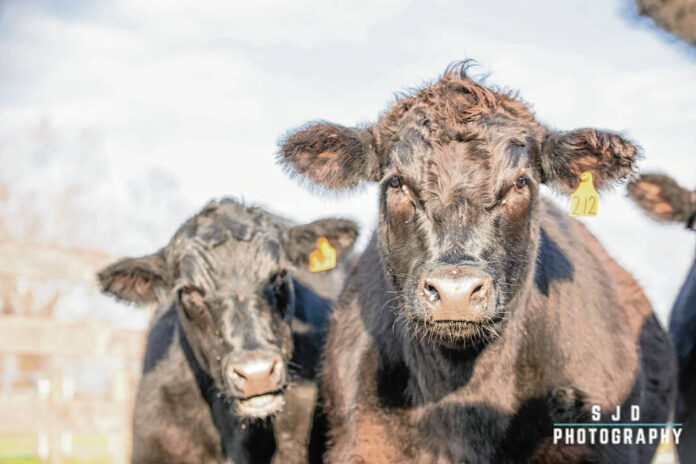
Cows at the Creek Cattle Co. farm located south of Indian Creek High School. A bill from a local lawmaker would provide grants to improve local meat processing capacity and production, which in turn would in turn benefit local meat producers, including Indian Creek High School’s farm-to-table program.
Submitted photo by SJD Photography | Samantha Deppe
Small meat processing facilities across the state are facing capacity issues, but a local lawmaker’s bill could soon help address this.
State Rep. Peggy Mayfield, R-Martinsville, has authored House Bill 1478, which would create a state grant program to help increase local meat processing capacity and production. The grant would be funded by a $10 million state investment, and recipients would be required to use it to buy land, construct or expand facilities and modernize equipment and technology to ensure food safety, according to a news release from Mayfield’s office.

Under the proposed language of the bill, each eligible facility would be eligible for a maximum grant amount of $500,000. The applicant would also be required to make an investment equal to their grant amount, the news release says.
Existing or startup commercial meat or poultry processors with under 500 employees that have a processing plant license in good standing with the Indiana State Board of Animal Health, or BOAH, could qualify for funding, which would be administered by the Indiana State Department of Agriculture, officials say.
Part of the impetus for the program results from issues lawmakers have seen over the last few years. Amid the coronavirus pandemic, small meat packers and processors were overwhelmed by the demand, which was causing meat producers to be turned away, Mayfield told the Daily Journal prior to the start of the session.
“If you were a 4-H student, you couldn’t get your meat processed, you had to schedule it months in advance,” she said. “Even during deer season, there were meat processors who were turning away hunters with their quarry because they didn’t have enough capacity to process the beef or the deer.”
Students who take part in Indian Creek Schools’ Creek Cattle Co. know the experience of processing delays all too well. Recently, the high school’s farm-to-table program had run into trouble trying to get meat processing scheduled for the program’s cattle.
“It was a struggle,” said Joe Dunn, an agriculture teacher and FFA advisor at ICHS. “We contacted a dozen different facilities and most of them were telling me that they don’t have times available.”
Cattle Creek Co. launched in 2020 and is part of Indian Creek’s agriculture curriculum. In the classes, students learn the basics about agriculture, livestock and the meat slaughtering and production processes, said Katie Heminger, a junior and Indian Creek FFA treasurer.
Students also raise livestock, currently only cows, and send them off for slaughtering and meat processing. Once students receive the processed beef back, they sell some of it to the school’s cafeteria to use as ground beef. Whatever is left is sold to different consumers, Heminger said.
“We have retail cuts, and we sell those to different consumers — mostly locally — to give back to our Creek Cattle Co.,” she said.
This is Cattle Creek Co.’s first year searching for a meat-processing facility on its own. The program had previously been able to use a community member’s unused scheduled slots to get their beef processed, Dunn said.
After Dunn reached out to facilities about getting a spot for Cattle Creek, he was told they could be put on a waitlist for an opening. While Dunn received dates from some facilities, they were at least six months farther out from what he was expecting, he said.
“It became a struggle,” Dunn said. “There’s not a whole lot (of facilities) near Johnson County for us to take those animals to.”
He also could not go to just any facility for Cattle Creek to get meat processed. Because Cattle Creek Co. sells processed beef to the school district, they can only use state-inspected processing facilities. This limits their options for meat processing facilities, he said.
“We have to go to a place that has the state inspector come in and check everything because those are federal guidelines,” he said.
Eventually, the program was able to find two places to get their meat processed this year: Maxwell Meats in Greenfield and Wayne’s Meats in Milan. The struggle still exists for other providers though, who have to plan years in advance to get processing scheduled, Dunn said.
“Everybody’s scheduling one year, two years, three years out with the anticipation that they’ll have animals ready,” he said. “If they don’t, they’ll cancel them, but we’re not always able to get those canceled dates.”
Mayfield’s grant program is inspired by a similar federal pandemic grant program where Indiana received $4 million to give out grants for small meat processors to improve facilities to meet the spike in demand and improve safety for workers. However, the money has expired, she said.
By creating a state program, Mayfield hopes to continue to give smaller meat processors additional opportunities to help with funding expansions and upgrades, she said. By increasing capacity and production, meat processors will be able to process more meat and lower wait times, officials say.
Dunn is supportive of Mayfield’s bill and believes it will be valuable for both meat producers and processors. Giving both existing and new facilities the opportunity to become more efficient will make things smoother for everyone across the board, he said.
“They’ll be faster at what they’re doing,” Dunn said. “They can process quicker, and they’ll have the ability to work through more customers.”
The House Agriculture and Rural Development Committee voted unanimously in support of Mayfield’s bill on Feb. 6. It now goes before the House Ways and Means Committee for further consideration. A vote has not yet been scheduled.


